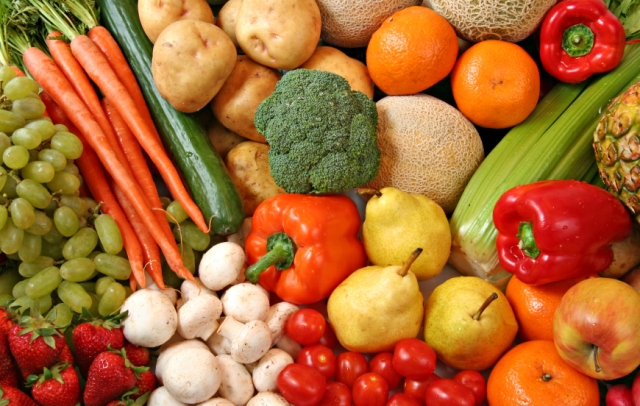The Greek branch of the international organization Greenpeace has warned of hazardous pesticides contained in many fruits and vegetables that are available in the Greek market.
The activists state that these are banned as well as quite legitimate substances that are particularly toxic to aquatic organisms, bees, the aquatic environment, farm animals, birds and other living organisms.
For this reason, the organization has urged the Greek Ministry of Agriculture and Food to take urgent measures in relation to pesticide use. Greenpeace recommends that sustainable agriculture without the use of chemicals and genetically modified organisms be developed.
The activists have examined 24 samples of fruits and vegetables (apples, pears, carrots, pumpkin, potatoes, onions and bananas), which were bought from various places in Athens. The majority of them contained pesticides, 27 of which are prohibited for use in Europe.

In its press release, the organization describes some of the health consequences of their use.
- "Doubts about carcinogenicity" (the active substance Thiacloprid, which was found in apples and pears)
- "It can harm the foetus during pregnancy" (the active substance Linuron, found in a sample of carrots)
- "A potential risk of reduced fertility" (the active substance Linuron, found in a sample of carrots)
- "Highly toxic for aquatic organisms" and / or "May cause long-term adverse effects in the aquatic environment" (the active substances Azoxystrobin, Chlorpyrifos, Deltamethrin, Indoxacarb, Imazalil, Linuron, Pyridaben, Captan were found separately or in combination with other substances in samples of pumpkins, carrots, apples, pears and bananas)
- "Highly toxic to bees" or "Dangerous to bees" (the active substances Chlorpyrifos, Etofenprox, Flonicamid and Indoxacarb were found in samples of apples, carrots and pumpkins).
Chemical "cocktails" with 3-9 different active substances per sample were found in samples of apples. Up to 6 different active substances were found in pears.
Greenpeace activists pose the question of how it is possible for products of last year's crop to contain so many active substances. Samples of imported pears from last year's crop and of bananas, which are products that travel long distances before reaching the final consumer, contained the substance Imazalil, which is particularly harmful and prohibited for use in the cultivation of bananas in Greece.
Active substances of preparations such as Linuron that should not be used were found in the sample of carrots. It was found in a sample of apples too, although it is allowed to be used as a wood preservative.
The person in charge of sustainable agriculture in the Greek branch of the organization, Eleni Danali, argues that to date there is no legislation to protect the consumers from the chemical "cocktails." "As for the so-called 'maximum permissible doses', Greenpeace's position is that the substances which are described as possibly carcinogenic and extremely toxic, and threaten human health and damage the environment should not be in the products at all."
As stated by her, there is a loophole in the European Union legislation connected with the dangerous pesticides that are banned for use in the European Union. "There is the possibility of allowing the use of such extremely dangerous, and therefore prohibited, chemicals for a period of 120 days every time it is requested. This totally unacceptable decree has become a common pattern in Greece," she said.
Recently, Greenpeace and beekeepers from all over Europe were able to convince the European Commission to ban three extremely harmful pesticides that destroy bee populations.
In connection with the hazardous substances during the research, Greenpeace calls on the Ministry of Agriculture and Food:
- To stop issuing "temporary permits" for the use of particularly hazardous pesticides.
- To apply the law on the control of pesticides that are used in agriculture in order to stop the treatment of crops with substances that are banned for use or are intended for another purpose.
-To create a database of the retail sale of pesticides in order for consumers to be aware of the producers that use substances for all products.
- To apply the requirements for good agricultural practice as a minimum prerequisite for the cultivation of crops in order to reduce the use of chemicals. Greece is lagging far behind in the European ranking as regards this indicator.
- To prevent Greek producers from cultivating genetically modified plants and plants with a high risk of contamination such as soybeans, for example.
The activists urge the Greek farmers to turn to the production of local varieties, as they need to be treated with substances the least.